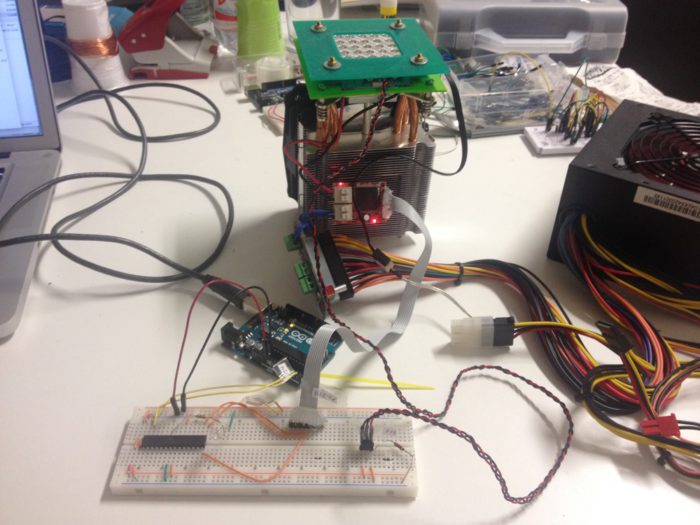A lab with an exhibition and a workshop on thermocycler takes place in a newly shaping TopLab.
Saturday, 27th January 2018. 12 PM – 10 PM
Schillerpromenade 4, 12049 Berlin
Offering activities in real laboratory and also home-like environment, as well as philosophical/theoretical, scientific and hands-on approaches, this lab will allow to discuss the issues of self-repair, creation/altering of organisms as well as bioethics/biosafety from multiplicity of perspectives.
Contributions by Mindaugas Gapševičius, Lina Rukevičiūtė, Alessandro Volpato, Gabrielius Jakutis, Miglė Kalvaitytė, Emilija Vasiliūnaitė among others
SynORI – a framework for multi-plasmid systems
The series of drawings introduce the Vilnius-Lithuania iGEM 2017 team‘s process of developing a SynORI – synthetic origin of replication. Under the same name the team has created a framework which, for the first time in science history, enables the alteration of plasmid copy number and standardized regulation of multi-plasmid systems. SynORI incorporates a subsystem for reducing the amount of antibiotics needed to maintain multiple plasmids in one cell, and will enable the creation of more complex metabolic pathways, smart assembly of protein complexes and a more precise information processing in synthetic biology.
Hack and build a thermocycler
Workshop led by Alessandro Volpato and Mindaugas Gapsevicius
Any research lab should include a thermocycler, an apparatus for amplifying segments of DNA via the polymerase chain reaction (PCR). The workshop includes an introduction to PCR mechanism, an understanding of the apparatus, hacking and upgrading a DIY version of it. The technical and theoretical part of the workshop will be supplemented by a list of projects using the PCR method.
Self-repair
Self-repair project is conceived and realized by Mindaugas Gapševičius. It is a reference to non-traditional cases where social considerations are excluded under existing circumstances, or a reference to the contexts of malfunctioning systems, especially of those related to one’s own body. Self-repair is about an ability to identify and to fix one’s own systems, by studying the available knowledge and consulting qualified specialists. Self-repair is also about experiments that might not be yet tolerated by society and that might instead be yet considered unethical.
The event is kindly supported by Lithuanian Council for Culture and the Ministry of Culture of the Republic of Lithuania, Nordic Council of Ministers.
Mindaugas Gapševičius (miga) is an artist, interested in intersection between arts, technologies and sciences. Since four years he is interested in the emergence of life and interaction between organic and inorganic matter. Mindaugas Gapševičius is a PhD candidate and an artistic associate at the Bauhaus University, Weimar. Interested in DIYbio and beyond.
Vilnius-Lithuania iGEM is the premiere student team competition in Synthetic Biology. In 2017 competition Vilnius–Lithuania iGEM 2017 team won the Grand Prize. Collaborators include Gabrielius Jakutis, Miglė Kalvaitytė, Emilija Vasiliūnaitė.
Alessandro Volpato is a biologist working on lab automation and designing systems for open and accessible science. He is interested in bridging communities and promoting interdisciplinary collaboration to valorize each other’s work.
Program
12.00 Welcome. coffee+snacks
13.00 Tour around TopLab
13.30 Introduction to Self-repair project. From plasmids to cloning self
14.30 Open science and Do it Yourself Biology (DIYbio)
15.00 DNA analysis at home
15.30 Introduction to DNA and PCR
16.00 Introduction to hacking, electronics and self build equipment
17.30 Hacking thermocycler
19.00 Chill out and soup

